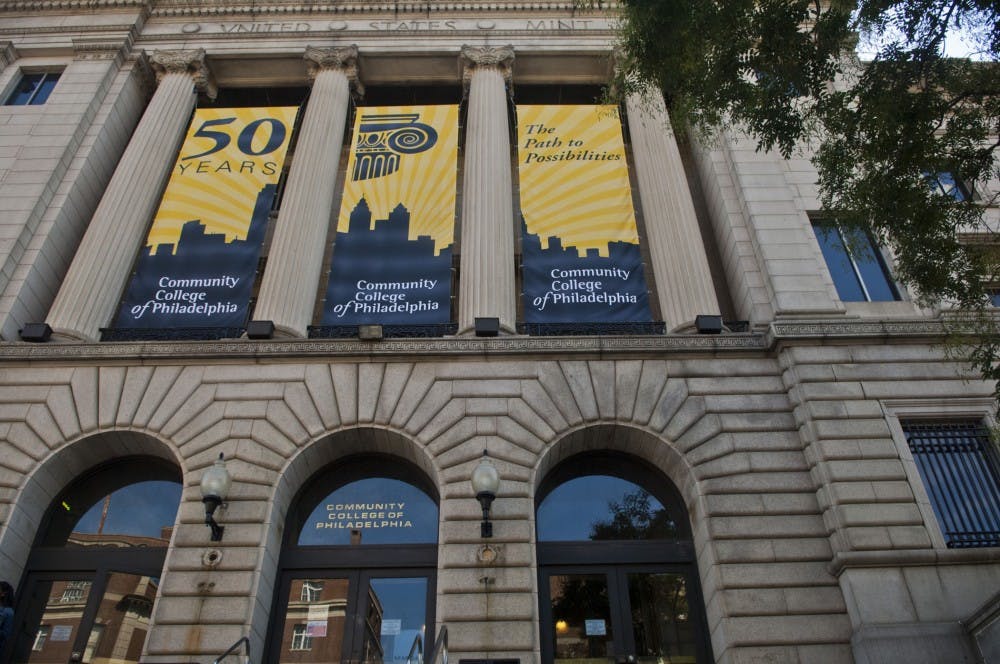
Community Colleges are one of the focus points for the movement for more affordable and more accessible higher education
Credit: Dennis Gingell , Denis Gingell | Courtesy of Wikimedia CommonsWith the alarmingly high — and rising — cost of college, the movement for more affordable and accessible higher education is building momentum, starting with community colleges.
On July 25, the College Promise Campaign and Innovative Educators hosted a discussion focusing on free community college. The event started with a screening of “No Greater Odds,” a film about students’ experiences at the College of Southern Nevada.
Before attending community college, one student in the film stated that she did not know what a major was. Afterwards, the students had their own goals including teaching, attending law school and touring the country as a victims’ advocate.
Following the screening, audience members engaged in a panel with Mary Cathryn Ricker, executive vice president of the American Federation of Teachers; Dr. Donald Generals, president of the Community College of Philadelphia; Michael Flores, communications and government affairs director at the College of Southern Nevada and James McCoy, associate vice president of academic affairs at the College of Southern Nevada.
The panel focused on the significance of community college, strategies to alleviate student debt and the effects of the Democratic National Convention.
“In the last two decades, we have been ramping up expectations — expecting students to go to higher education because all indicators say that they need to,” Ricker said. “We have this 30-foot expectation that kids are supposed to go to college, but our path for them to get there has not caught up.”
In order to help students prepare for success, many community colleges have started to require pre-orientation, standardized testing and mandatory career advising. The Community College of Philadelphia also requires their students to participate in civic engagement.
With these requirements in place, retention rates are increasing. The Community College of Southern Nevada found that high school students who prepare for community college their junior and senior years have the highest retention rate among all students.
The panel also focused on the national level. The Democratic Party’s platform calls for extending debt-free and tuition-free college for students that qualify.
“This is the most progressive platform the Democratic Party has ever adopted,” Ricker said. “However, it won’t be worth the paper it’s written on if we collectively don’t take responsibility for having discussions and getting these ideas on the desks of those who matter.”
Although the Democratic platform focuses on free community college, higher education took a backseat to other national issues such as immigration, police brutality and gun violence.
Until Wednesday, Sen. Bernie Sanders (I-Vt.) was the only one of five keynote speakers who mentioned affordable higher education.
Ricker explained why students from private and public universities, who have their own financial concerns, should make community college affordability a top priority.
“There are so many community colleges in communities that people can immediately picture what this means for them,” Ricker said. “It can be so real for so many people right away.”
Dr. Generals also noted that some community college students transfer into four year institutions, becoming Penn students’ peers.
“[Community colleges has] demonstrated not only the demand for what we provide, but also the outcomes... as a result, four year institutions are more willing to work with us,” Generals said. “We have sent students to Penn, Bryn Mawr, and Swarthmore, the highest liberal arts colleges in the country.”
The Daily Pennsylvanian is an independent, student-run newspaper. Please consider making a donation to support the coverage that shapes the University. Your generosity ensures a future of strong journalism at Penn.
DonatePlease note All comments are eligible for publication in The Daily Pennsylvanian.







